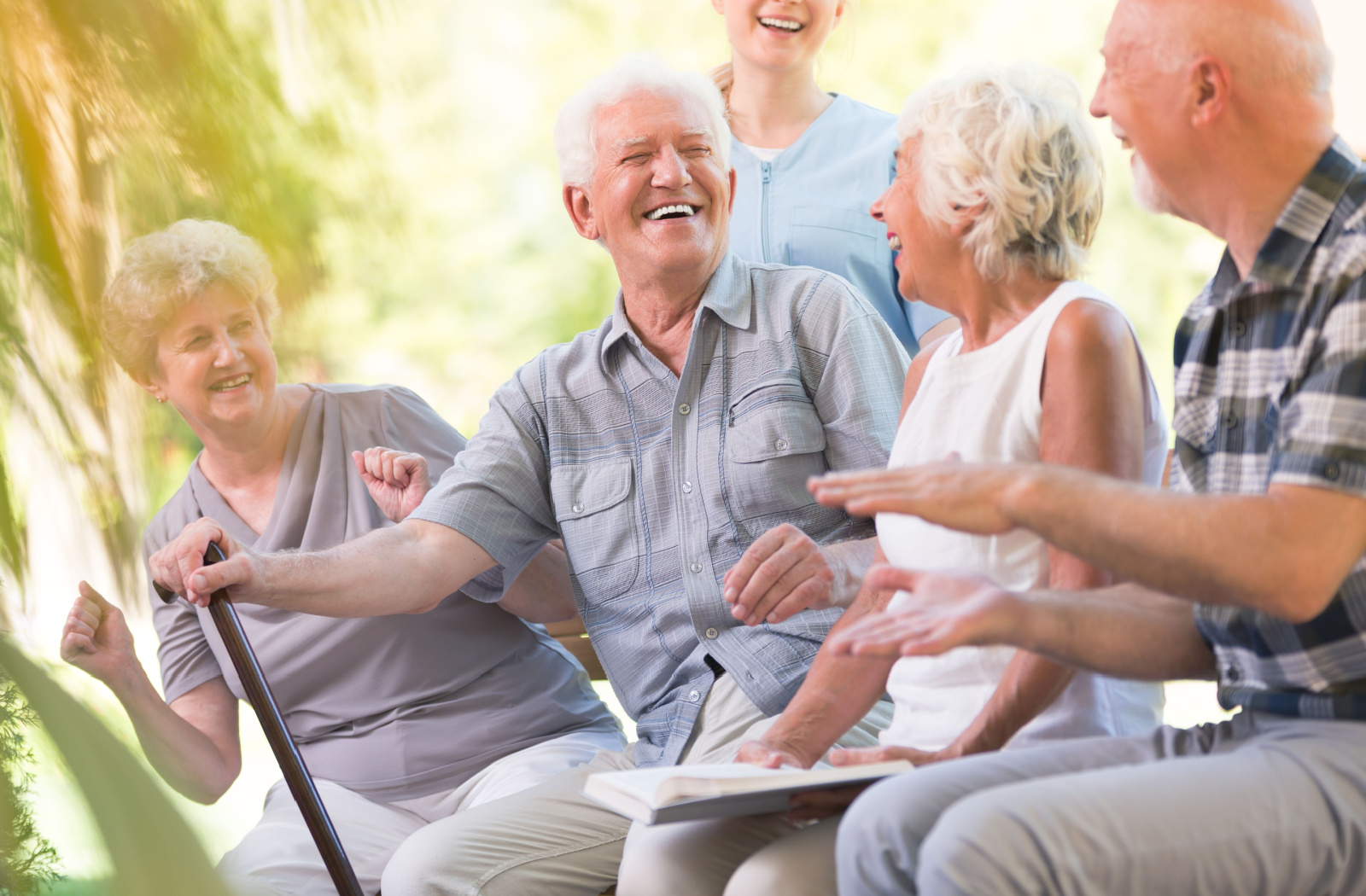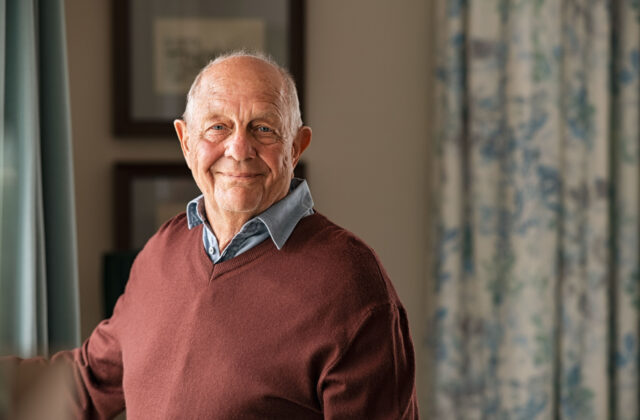There are numerous reasons a senior may develop memory loss challenges, but there are also habits and activities that can help improve seniors’ memory. Regular socialization, a healthy diet and lifestyle, learning new things, and physical activity can all benefit an older adult’s memory.
Many senior living communities offer ways to support seniors’ health and well-being at all levels of care, including memory care—whether directly or as a result of being in a community. In addition to helping improve memory loss, these things can also contribute to a senior’s overall wellness.
What Are the Different Ways to Improve Memory for Seniors?
There isn’t a magic one-size-fits-all answer to improving memory. The brain and its functions are complex, and ultimately it can come down to what is causing memory loss. Several habits that may be able to improve symptoms of memory loss or slow its progression include the following:
Physical Activity
The CDC recommends that an older adult gets 75 to 150 minutes of physical activity weekly, depending on activity intensity. One might think this is simply for general health improvement, but the benefits can reach further than that.
A recent study revealed that aerobic exercise could actually help prevent the progression of memory decline. There isn’t a concrete answer as to why or how this works, but researchers suspect it’s related to increased blood circulation and the mental stimulation that often accompanies exercise.
Continued Learning
Lifelong learning is associated with a lower risk of developing dementia or one of its related conditions. This isn’t to say that everyone needs to go to university or stay in school until they’re in their golden years, but the principle is to keep one’s mind active. This could be taking part in mentally stimulating activities or learning a new skill like cooking or dancing.
 Socialization & Group Activities
Socialization & Group Activities
Maintaining a broad social network and participating in group activities is a great way to simply enjoy getting older. One doesn’t have the responsibility of going to a routine job anymore and can kick back and enjoy their days with friends, new and old.
Research actually points to the positive effect that socialization can have on the aging mind. A comprehensive study done on mice indicates that an active social network can help slow cognitive decline and preserve memory.
Healthy Diet & Lifestyle
We know that there isn’t a magic cure-all when it comes to our diet and lifestyle, but there’s no denying the positive effect that a healthy diet and lifestyle can have on our health—mental and physical.
Research indicates that specific diets like the Mediterranean, or MIND, diet can have a profound effect on the aging mind. Eating whole foods and lots of fruits and vegetables can be a huge benefit for some seniors, even if they don’t follow a specific diet.
Good Sleep Habits
Many of us have experienced trouble remembering things or maybe difficulty focusing on a task when we’re tired. Good sleep is more important for improving memory than one might realize.
While we sleep, our brain prepares itself for learning new things by freeing up space in the hippocampus—the part of the brain that stores short-term memory. It also helps to consolidate memories so you can recall them down the road.
Common Causes of Memory Loss in Seniors
There isn’t one answer to what causes memory loss in seniors. It could be from a disease, injury, or a combination of things. Some things that can cause memory loss include:
- Alzheimer’s Disease: Alzheimer’s is the most common form of dementia—not just a normal part of aging. It’s a progressive disease that typically begins with mild memory loss but can progress to the point where a senior can no longer safely care for themselves. Memory care may be a good option for some older adults in this case.
- Dementia: Dementia is an umbrella term that covers a loss of memory, language, or problem-solving. While many people might assume this is a normal part of aging too, it’s not. Dementia can eventually interfere with a person’s daily life to the point that they are often unable to care for themselves.
- Mild Cognitive Impairment (MCI): MCI is not a cut-and-dry condition. It can be less severe than Alzheimer’s or other forms of dementia, and there isn’t a single cause for it. MCI is typically marked by general forgetfulness or losing things often. It doesn’t always turn into dementia, but around 10–20% of people 65 and older develop dementia after MCI.
Finding a Community with Adequate Support in Place
It can be easy to give in to the fear of losing one’s memory, even though it’s not a guaranteed part of aging. This could be due to our growing knowledge of risk factors like genetics, lifestyle choices, or seemingly unrelated diseases like diabetes.
The most important thing, especially if you or a loved one is at a higher risk of developing dementia, is to learn everything you can about the disease.
The other important thing is planning ahead. This might include researching and arranging memory care services, or respite care services if a loved one will be the primary caregiver should the need arise.
If you or a loved one is considering retirement in Arvada, contact our team at Ralston Creek Neighborhood. We’re happy to answer all your questions and book you a tour of the community, so you can see the benefits for yourself.


